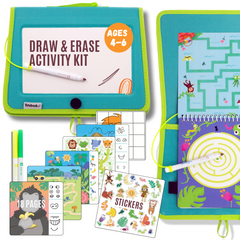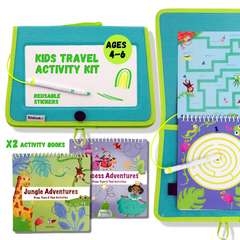Today's parents, many of whom grew up in the free-range 1990s, are beginning to reflect nostalgically on their childhood freedom, exploring outdoors unsupervised, climbing trees, inventing games, and coming home only as the streetlights flickered on. As parenting trends evolve, there is a growing movement advocating for a return to these simpler times. More parents in the 2020s are opting to raise their children as "90s free-range kids," a style characterized by less technology, less rigid structure, and plenty of independent, imaginative play.
The Appeal of Low-Tech Childhoods
One driving force behind this shift is the modern over-reliance on digital devices, which can limit creativity, outdoor activity, and face-to-face interaction. Recent studies show that too much screen time can hinder children's physical, emotional, and cognitive development. Parents seeking alternatives have found inspiration in the 90s childhood model, where entertainment was analog and imagination-driven rather than app-dependent. Our Totebook Kids Activity Kit was conceived as a no-tech option for road trips and a quieter (non iPad) form of entertainment that spurs creativity and imagination.
Today's parents who embrace this philosophy strive to minimize screen usage and encourage outdoor adventures, fostering natural curiosity and a genuine love for exploration. Whether it’s catching bugs in the backyard or building forts in the woods, these offline activities help children develop independence, creativity, problem-solving skills, and physical coordination.
Valuing Less Structure and More Freedom
Another hallmark of 90s-style parenting is allowing kids to play freely, without overly rigid schedules or structured activities. Today's children often move from one supervised, scheduled event to another, soccer practice, piano lessons, or enrichment classes, rarely having space to simply relax, daydream, and invent their own fun. Proponents of a free-range upbringing argue that unstructured time promotes essential skills like independence, resilience, and the ability to manage boredom effectively.
The return to less structure does not mean abandoning organized activities altogether, but it emphasizes balance. Parents are encouraged to provide a healthy mix of scheduled and unscheduled playtime, trusting their children's innate abilities to discover interests, navigate social interactions, and resolve conflicts independently.
Building Confidence Through Independent Play
Independent play is central to the free-range concept. Allowing children to play without constant adult supervision helps build critical life skills such as decision-making, risk assessment, and confidence. When children learn through firsthand experience, sometimes making mistakes, they develop a stronger sense of responsibility and self-reliance.
Today’s free-range parents empower their kids by giving them age-appropriate freedoms, like walking to a friend's house alone, riding bikes around the neighborhood, or spending time at local parks unsupervised. This not only provides essential life experiences but also helps kids develop a strong sense of community and belonging.
Challenges and Community Support
Despite growing interest, raising free-range kids today can face practical challenges due to societal expectations, safety concerns, and even legal restrictions. To address these challenges, free-range parenting advocates suggest building supportive community networks. Neighborhood groups, parenting cooperatives, and organized outdoor activities can help parents provide children with safe spaces and a supportive environment in which to explore independently.
A Balanced Approach for Modern Families
Raising 90s free-range kids in the 2020s involves mindful choices about technology use, daily routines, and personal freedoms. While the goal of raising free-range kids includes minimizing dependence on screens, watching TV can still have its place, just like it did in the 90s. The key is thoughtful moderation and intentional selection. Rather than turning on the TV as a default solution to boredom, free-range-minded parents carefully choose what their kids watch and when. They look for educational, age-appropriate programming that sparks curiosity, conversation, and creativity, just as iconic 90s shows like Bill Nye the Science Guy, Reading Rainbow, and Magic School Bus did for their generation. The goal isn't to replicate the exact conditions of a bygone era but rather to embrace a balanced approach that draws on the best aspects of a free-range childhood. By doing so, parents can nurture resilience, curiosity, and independence in their children, giving them the tools they need to thrive in a complex, rapidly changing world.
–
Written by staff writers from HappyWriters.co











Leave a comment